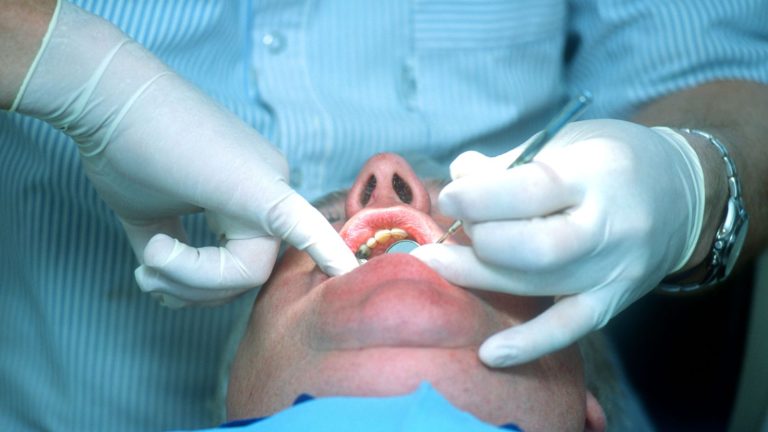Northern Ireland has avoided being included in the impending EU ban on amalgam fillings.
The British Dental Association (BDA) was among those warning of the consequences of the proposed ban, arguing it would cause “irreparable and long-lasting damage” to services.
The EU is to ban the use of amalgam from January as part of an effort to reduce the public’s exposure to mercury.
The ban was to apply in Northern Ireland because aspects of EU law still apply in the region under post-Brexit trade rules.
However, the UK and EU have agreed a derogation which means amalgam can continue to be used in Northern Ireland for potentially another 10 years.
The derogation applies until 31 December 2034 or until a ban is introduced under the international multilateral environmental agreement – the Minamata Convention – to which the UK is a signatory.
There are a number of conditions attached to the EU derogation, notably in terms of reporting and demonstrating progress in reducing the use of amalgam in Northern Ireland.
Stormont Health Minister Mike Nesbitt said the conditions were feasible and in line with his department’s long-term policy objectives on the use of amalgam.
“Securing a variance was a priority for the department given the impact it would have on patients and dentists,” he said.
“I took this message urgently to the Secretary of State for Northern Ireland (Hilary Benn) on this matter as soon as she took office, to stress to her the importance of effective action.
“I am very pleased that this has been ensured and that the phasing out of dental amalgam can proceed in a much more planned manner over the coming years.”
A Stormont assembly committee set up to scrutinize upcoming changes to EU law has been examining the implications of the ban as part of the Stormont brake oversight element of the post-Brexit Windsor framework.
The brake is a mechanism that allows at least 30 MLAs to refer a proposed law change to the UK government.
The government then assesses the proposed change in Northern Ireland and can veto its application in the region.
However, the London-Brussels agreement on a derogation came before any formal move to activate the Stormont brake.
Ciara Gallagher, chair of the BDA’s Northern Ireland Dental Committee, said the proposed ban could spell the end for NHS dentistry in Northern Ireland.
“We raised the alarm and fought tooth and nail for a workable solution,” he said.
“This delay is a ray of hope for a service that has been brought to its knees and could not bear further financial pressure.
“We have some breathing room, but Stormont and Westminster cannot take their foot off the pedal to affect the seamless transition to amalgam-free dentistry.
“Any progress will require reforms, investment and concerted action on deep oral health inequalities.
“When the plug ends with the amalgam, Northern Ireland will need to have a healthier population and a more sustainable service. Otherwise, this 10-year derogation is simply a stay of execution for NHS dentistry.’
DUP leader Gavin Robinson welcomed the development, saying: “Since the early days of this government, we have been urgently increasing Northern Ireland’s access to dental amalgam supplies.
“Last week, we warned the Secretary of State for Northern Ireland that in the absence of a proper deal with Brussels, we will not hesitate to use the new mechanisms available to us at Stormont to protect our dental sector and its supply chain.
“I am glad that common sense prevailed and that a firm and workable agreement was reached. The safeguards we secured played an important role in bringing London and Brussels to this place.
“It is important now that the Democratic Scrutiny Committee at Stormont has the time and space to fully investigate this aberration. We need to ensure that it protects our supply chain and ensures that there is no deviation in the UK dental sector.”
Alliance MLA Eoin Tennyson said: “Today’s announcement is further evidence that through constructive and solutions-focused engagement with our European partners, we can deliver positive outcomes for the people of Northern Ireland.”
TUV leader and North Antrim MP Jim Allister said the EU deal on dental amalgam underlined Northern Ireland’s “colonial status”.
“No other part of the UK would accept such an order and no democrat should accept this as any kind of victory,” he said.
Catch up on the latest UTV Live on ITVX
Want a quick and special update on the biggest news? Listen to our latest podcasts to find out what you need to know.

